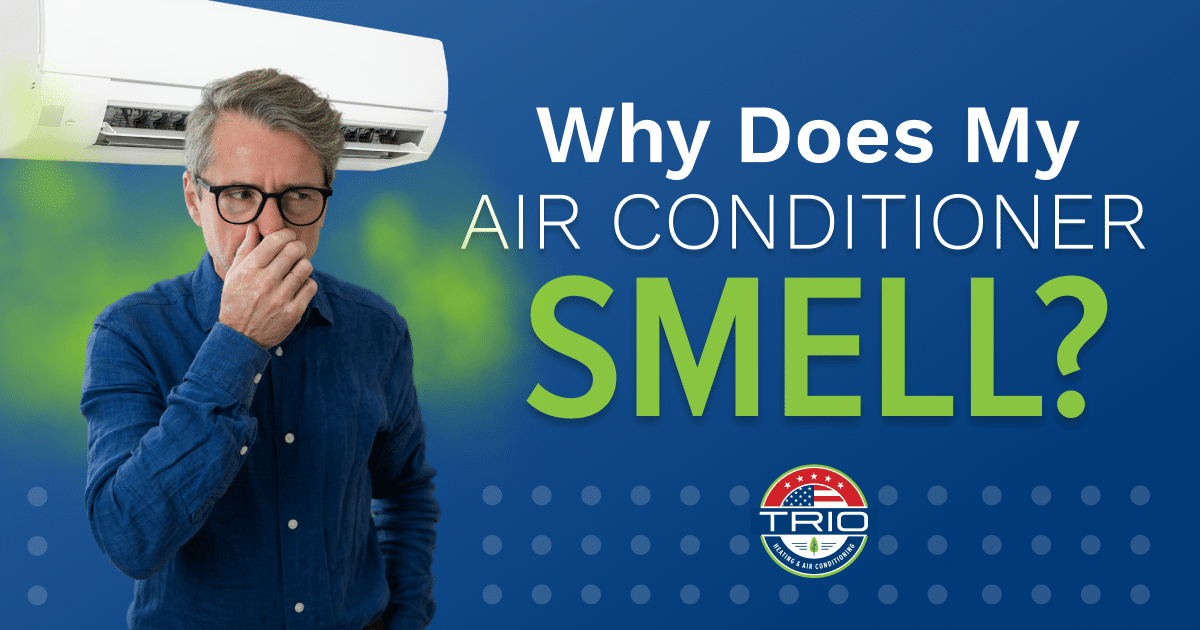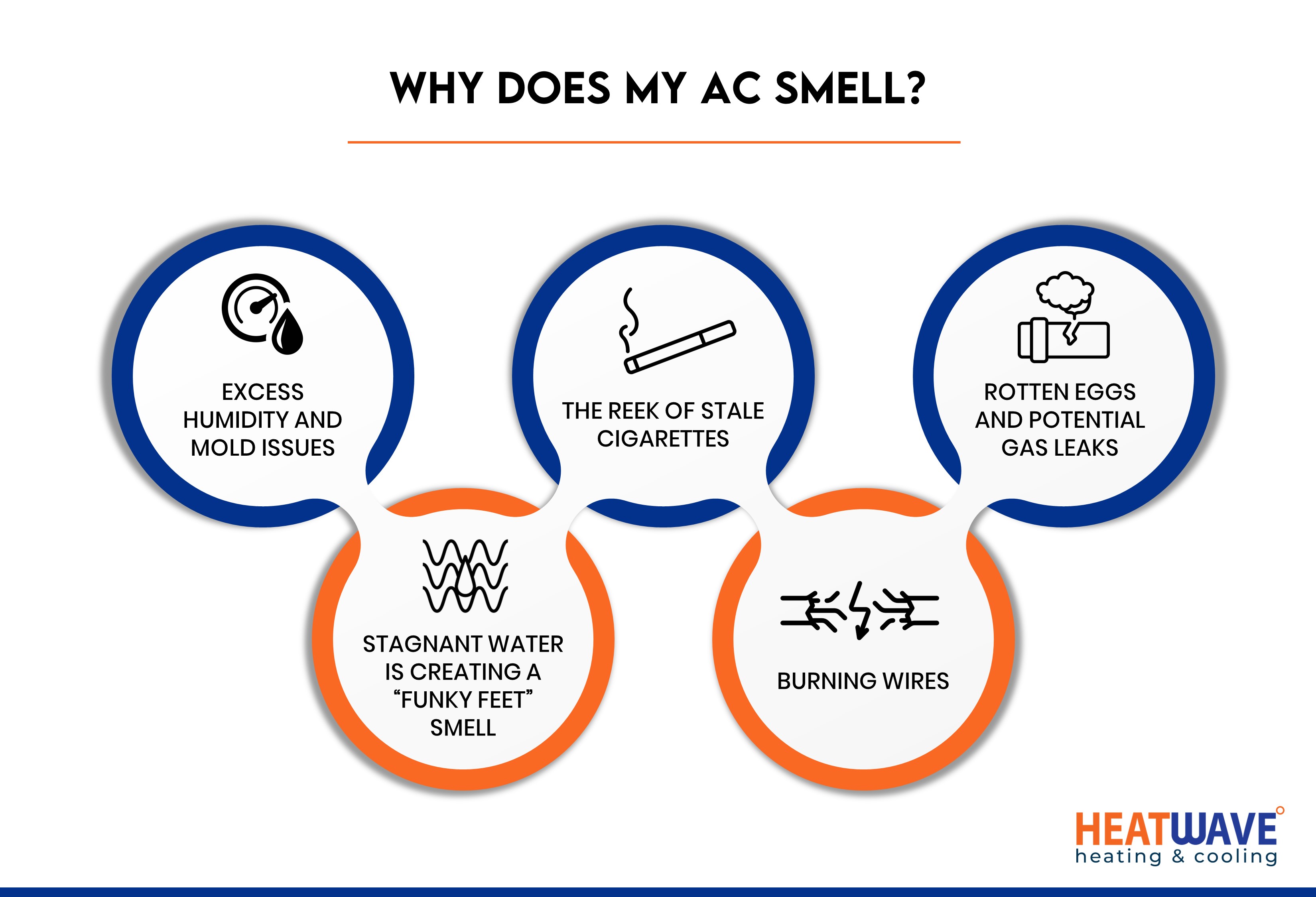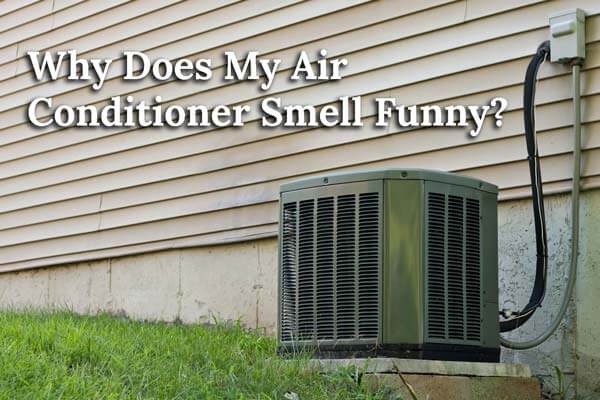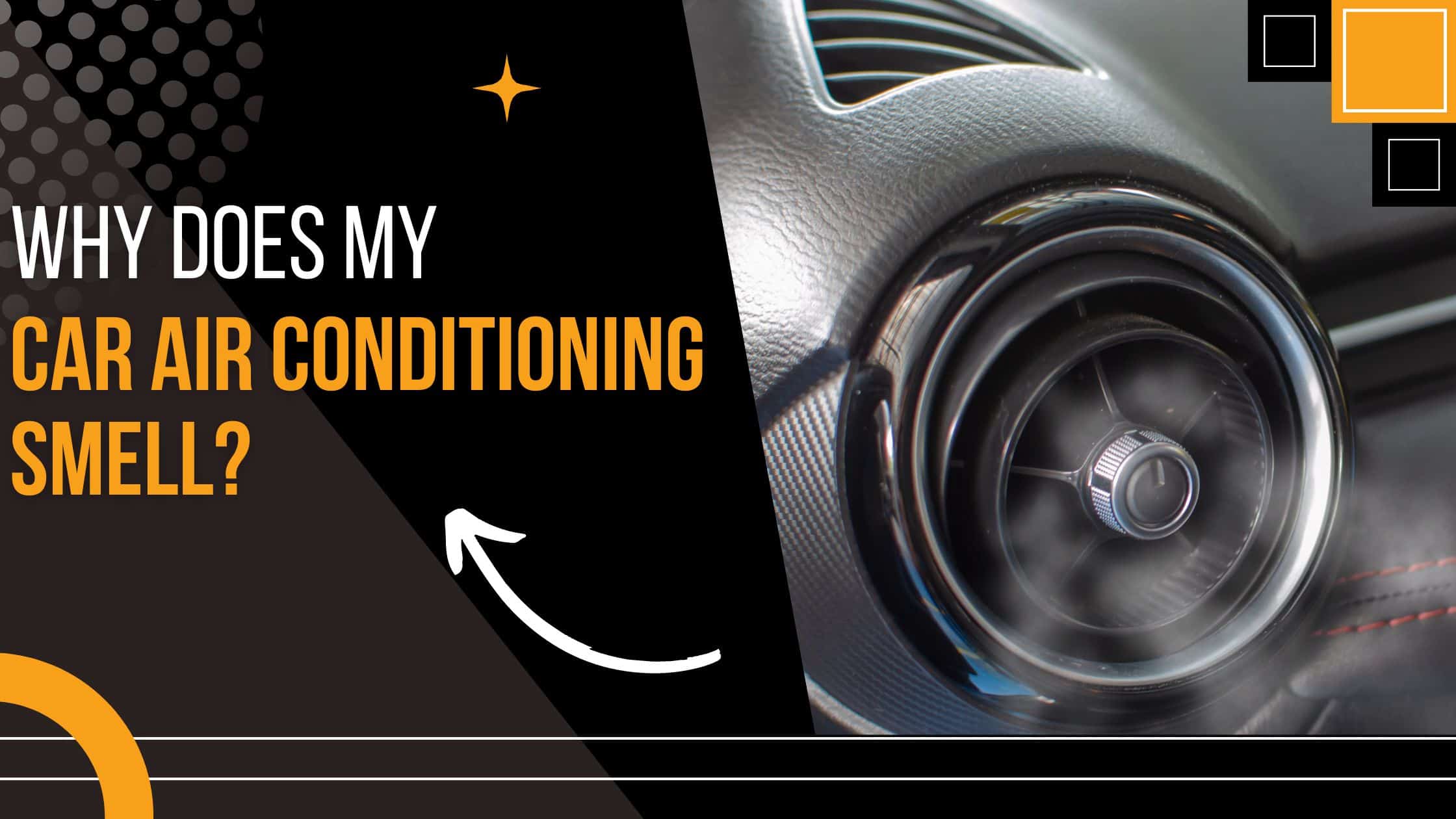Why Does My Air Conditioning Smell Weird

Why Does My Air Conditioning Smell Weird? A Comprehensive Guide
A strange odor emanating from your air conditioning system can be unsettling and is often a sign that something isn't quite right. While some smells are simply unpleasant, others can indicate serious problems that require immediate attention. This guide will help you identify the source of the odor, understand its potential causes, and determine the best course of action.
Understanding Common Air Conditioning Smells
The type of smell can often provide valuable clues about the underlying issue. Here's a breakdown of common AC odors and their likely causes:
- Musty or Moldy Smell: This is one of the most common AC smells and usually indicates the presence of mold or mildew. Mold thrives in dark, damp environments, making the evaporator coil, drain pan, and ductwork ideal breeding grounds.
- Burning Smell: A burning smell suggests overheating components within the AC unit. This could be a failing motor, a loose electrical connection, or a problem with the compressor. Never ignore a burning smell! It's a fire hazard and requires immediate professional attention.
- Rotten Egg Smell: This foul odor often indicates a natural gas leak. Natural gas is odorless, so utility companies add a chemical called mercaptan to make it detectable. If you smell rotten eggs, immediately evacuate your home and call your gas company or 911.
- Chemical Smell: A chemical smell, similar to formaldehyde or ammonia, could indicate a refrigerant leak. Refrigerant, like Freon (R-22) or newer alternatives like R-410A, can be harmful if inhaled in large quantities. A professional HVAC technician is needed to locate and repair the leak.
- Dirty Sock Smell: As unpleasant as it sounds, the "dirty sock syndrome" is a common issue caused by bacteria and mold growth on the evaporator coil. When the AC is turned on, the air passes over the contaminated coil, carrying the odor into your home.
- Electrical Smell: This smell usually indicates burning wire insulation or other electrical components. Similar to a burning smell, an electrical odor is a fire hazard and requires immediate attention from a qualified electrician or HVAC technician.
- Sweet Smell: A sweet, syrupy smell can sometimes indicate a coolant leak in your car's AC system, but it can occasionally occur with certain types of HVAC systems as well. This isn't as common as other odors, but warrants investigation.
Detailed Causes of AC Odors
Now, let's delve deeper into the specific causes of these smells:
Mold and Mildew Growth
As mentioned earlier, mold and mildew are common culprits. The evaporator coil is particularly susceptible to moisture buildup. When the AC cools the air, condensation forms on the coil. If the drain is clogged or not functioning correctly, the moisture can't escape, creating a breeding ground for mold and mildew. The drain pan beneath the evaporator coil can also accumulate stagnant water, contributing to the problem. Poorly maintained ductwork can also harbor mold spores, distributing them throughout your home.
Mechanical and Electrical Issues
Burning smells are almost always related to mechanical or electrical problems. Overheating motors, faulty wiring, and failing compressors can all produce a distinct burning odor. Compressor failure is a serious issue that can lead to costly repairs or even require a complete system replacement. Similarly, electrical shorts or loose connections can overheat and create a burning smell and potentially spark a fire.
Refrigerant Leaks
Refrigerant is a crucial component of your AC system, responsible for absorbing heat and cooling the air. Leaks can occur due to corrosion, damage, or faulty connections. While older refrigerants like R-22 (Freon) are being phased out, newer alternatives like R-410A and R-32 are also susceptible to leaks. A refrigerant leak not only reduces your AC's cooling efficiency but can also pose health risks if inhaled in significant quantities.
Dirty Filters
A dirty air filter restricts airflow, forcing your AC system to work harder and potentially overheat. It also allows dust, pollen, and other allergens to accumulate in the system, which can contribute to unpleasant odors. Replacing your air filter regularly (every 1-3 months) is crucial for maintaining both air quality and the efficiency of your AC system. Look for filters with a high MERV rating for better filtration.
Ductwork Problems
Leaky or poorly insulated ductwork can allow moisture and contaminants to enter the system, leading to mold growth and unpleasant odors. Pests like rodents or insects can also find their way into the ductwork, leaving behind droppings and debris that contribute to the smell. Professional duct cleaning and sealing can improve air quality and eliminate odors.
Troubleshooting and Solutions
Here are some steps you can take to troubleshoot and address AC odors:
- Change the Air Filter: This is the simplest and often most effective solution for minor odors.
- Clean the Evaporator Coil: You can purchase coil cleaner at most home improvement stores. Follow the manufacturer's instructions carefully and turn off the AC unit before cleaning. Caution: This task is best left to professionals if you're not comfortable working with electrical components.
- Check the Drain Line: Ensure the condensate drain line is clear and free of obstructions. You can use a wet/dry vacuum to remove any clogs.
- Inspect the Ductwork: Look for any signs of damage, leaks, or pest infestations. Consider professional duct cleaning and sealing if necessary.
- Schedule Professional Maintenance: Regular AC maintenance by a qualified HVAC technician can help prevent odors and identify potential problems early on.
When to Call a Professional
Certain AC smells require immediate professional attention:
- Burning Smell: Indicates a serious electrical or mechanical issue.
- Rotten Egg Smell: Indicates a natural gas leak.
- Chemical Smell: Indicates a refrigerant leak.
- Any persistent odor: If you've tried the troubleshooting steps above and the odor persists, it's best to consult a professional.
Choosing the Right HVAC System to Prevent Odors
When replacing or upgrading your HVAC system, consider models with features designed to minimize odor problems:
- UV Lights: Some systems incorporate UV lights that kill mold and bacteria on the evaporator coil.
- High-Efficiency Filters: Systems with advanced filtration capabilities can remove more dust, pollen, and allergens, reducing the potential for odors.
- Proper Installation: Ensure your new system is installed correctly by a qualified technician. Proper installation is crucial for preventing leaks, condensation problems, and other issues that can lead to odors.
Popular HVAC Brands and Models
Here are a few popular HVAC brands known for their reliability and performance, along with examples of models that include features to minimize odors:
- Carrier: Offers a range of air conditioners with features like UV lights and advanced filtration. Carrier's Infinity Series boasts high SEER ratings (up to 26) and quiet operation.
- Trane: Known for its durable and reliable systems. Trane's XV20i variable speed air conditioner offers precise temperature control and efficient operation with a SEER rating of up to 20.
- Lennox: Provides innovative and energy-efficient HVAC solutions. Lennox's Signature Series includes models with iComfort technology for smart home integration and precise temperature control.
- Goodman: Offers affordable and reliable HVAC systems. Goodman air conditioners often provide excellent value for the price, with SEER ratings that meet or exceed industry standards.
- Mitsubishi Electric: Specializes in ductless mini-split systems, which are known for their energy efficiency and zoning capabilities. These systems often include advanced filtration systems to improve air quality.
When comparing HVAC systems, pay attention to the SEER (Seasonal Energy Efficiency Ratio) rating for cooling efficiency, the HSPF (Heating Seasonal Performance Factor) rating for heating efficiency (for heat pumps), and the AFUE (Annual Fuel Utilization Efficiency) rating for gas furnaces. Higher ratings generally indicate greater energy savings.
Warranties and Maintenance
HVAC systems typically come with a manufacturer's warranty that covers parts and labor for a specified period. Be sure to understand the terms and conditions of the warranty before purchasing a system. Regular maintenance is essential for maintaining the warranty and preventing problems. A typical maintenance schedule includes:
- Annual inspection and cleaning of the AC unit by a qualified technician.
- Regular air filter replacement (every 1-3 months).
- Cleaning the evaporator coil and condensate drain line.
- Checking refrigerant levels and pressure.
Ignoring routine maintenance can void your warranty and lead to costly repairs down the line.
Conclusion
A weird smell coming from your air conditioning system is never a good sign. By understanding the common causes of AC odors and taking proactive steps to address them, you can ensure that your system operates efficiently and provides clean, healthy air for your home. Remember to prioritize safety and call a qualified HVAC technician when dealing with potentially dangerous situations like burning smells, gas leaks, or refrigerant leaks. With proper maintenance and a well-chosen HVAC system, you can enjoy cool, odor-free comfort for years to come.










